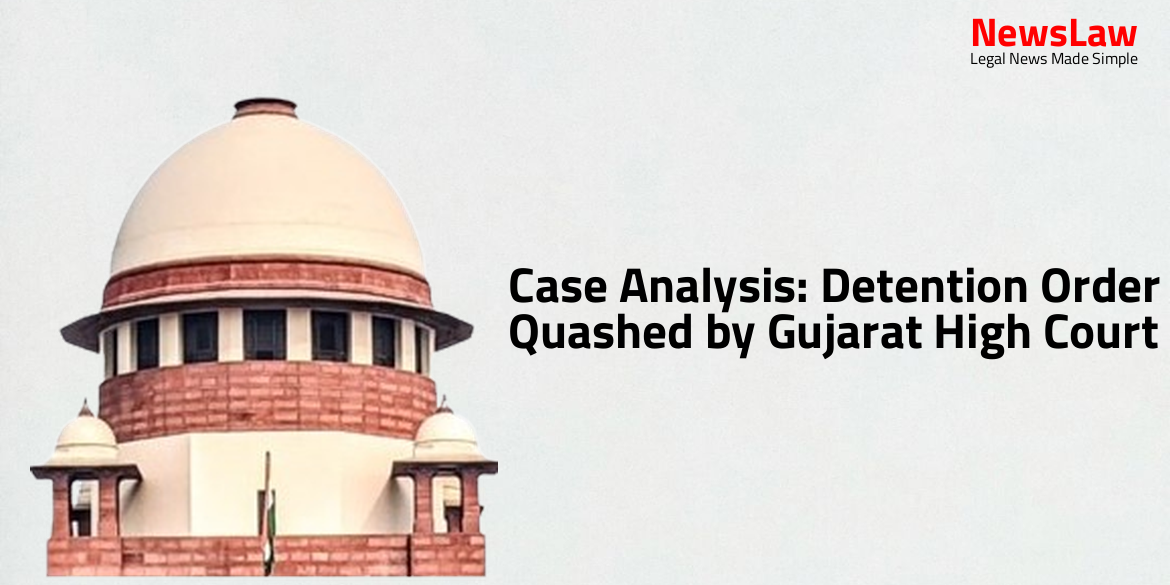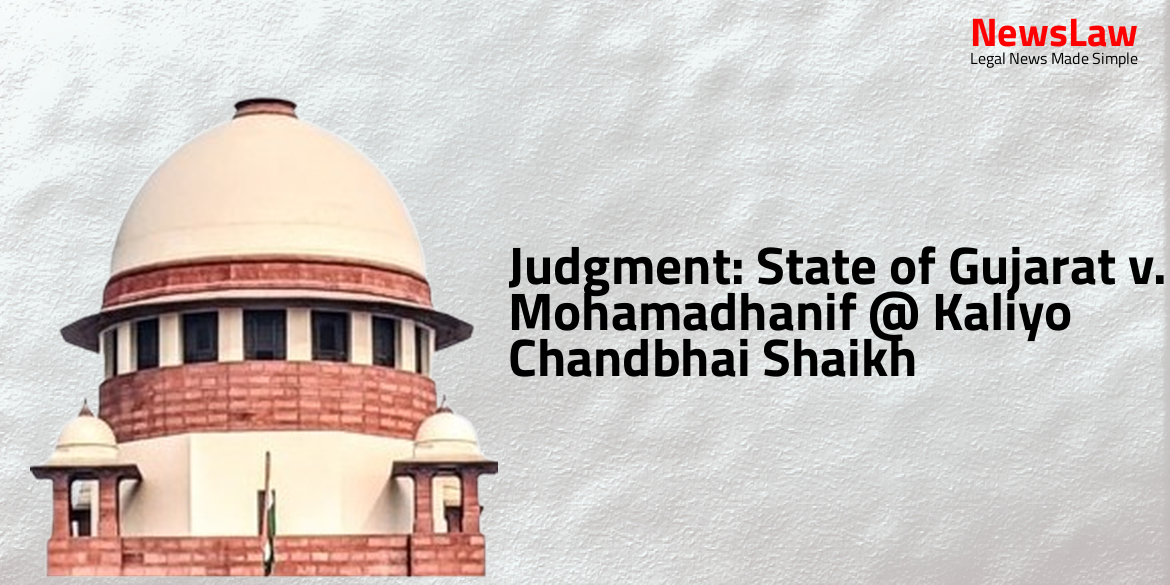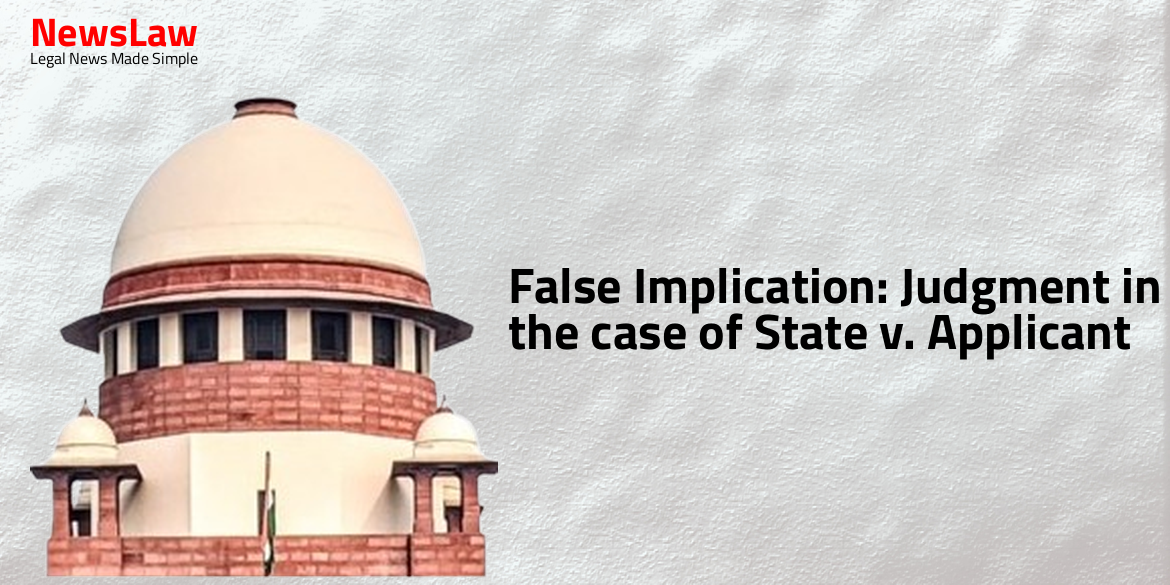A significant legal development has emerged from the Gujarat High Court regarding the detention order in the case involving the Police Commissioner, Surat. The Court has ruled on the legality of the detention order, emphasizing the distinction between law and order and public order. Stay tuned for a detailed analysis of the judgment and its impact on preventive detention cases. #LegalCase #GujaratHighCourt
Issue
- The petition is filed under Article 226 of the Constitution of India seeking relief to quash and set aside the order of detention dated 02.11.2023 passed by the Police Commissioner, Surat.
- The petitioner has been detained as a ‘dangerous person’ based on two registered offences against him.
- The challenge is specifically directed towards the legality of the detention order and the grounds on which it was issued.
Arguments
- The order of detention is challenged and argued to be quashed and set aside.
- Registration of offences under the Indian Penal Code alone does not bring the case of the detenue under the definition of the Act.
- The illegal activity alleged does not have a nexus with the maintenance of public order but can be considered a breach of law and order.
- The detaining authority had the option to cancel the petitioner’s bail if needed.
- The petitioner’s activities in criminal cases did not pose a threat to society or disrupt public order.
- The detenue’s alleged anti-social activities were not convincingly linked to a breach of public order.
- The detaining authority cited the petitioner’s confession to theft and other supporting evidence like the panchnama.
- The theft offenses were related to private individuals and did not amount to a breach of public order, as per the grounds of detention.
Analysis
- The petitioner has been granted bail in connection with both offences the detaining authority relied upon.
- The detention order does not consider cancellation of bail as a method to prevent further offences.
- The detaining authority did not explore the option of cancelling the bail.
- The offences the petitioner is involved in do not lead to public disorder but are against private individuals.
- The FIRs against the petitioner fall under Chapter 16 and 17 of the IPC, making them a ‘dangerous person’.
- The subjective satisfaction of the detaining authority appears flawed given the circumstances of the case.
- The allegations in the FIR/s do not have any bearing on public order as required under the Act.
- Other relevant penal laws are sufficient to handle the situation described in the FIR/s.
- The allegations against the detainee do not meet the criteria for preventive detention under section 2(c) of the Act.
- To justify preventive detention, there must be evidence that the person poses a threat and menace to society, disturbing the overall harmony of society.
- Reference to the case of Pushker Mukherjee v/s. State of West Bengal, where the Supreme Court distinguished between ‘law and order’ and ‘public order’.
- Serious and aggravated forms of disorder affecting the community relate to public order, while minor breaches primarily affect specific individuals and only secondarily public interest.
- Mere disturbance of law and order leading to disorder does not warrant action under the Preventive Detention Act, only disturbances affecting public order fall under the Act’s scope.
- Cases where two individuals fight or quarrel resulting in assault are considered disorder, not public disorder, and are addressed under ordinary criminal law.
- 1.2019
- 9
- 633
Case Title: ABID S/O AJIJ SHAIKH THRO NADIM S/O AJIJ SHAIKH Vs. STATE OF GUJARAT
Case Number: R/SCA/20152/2023



